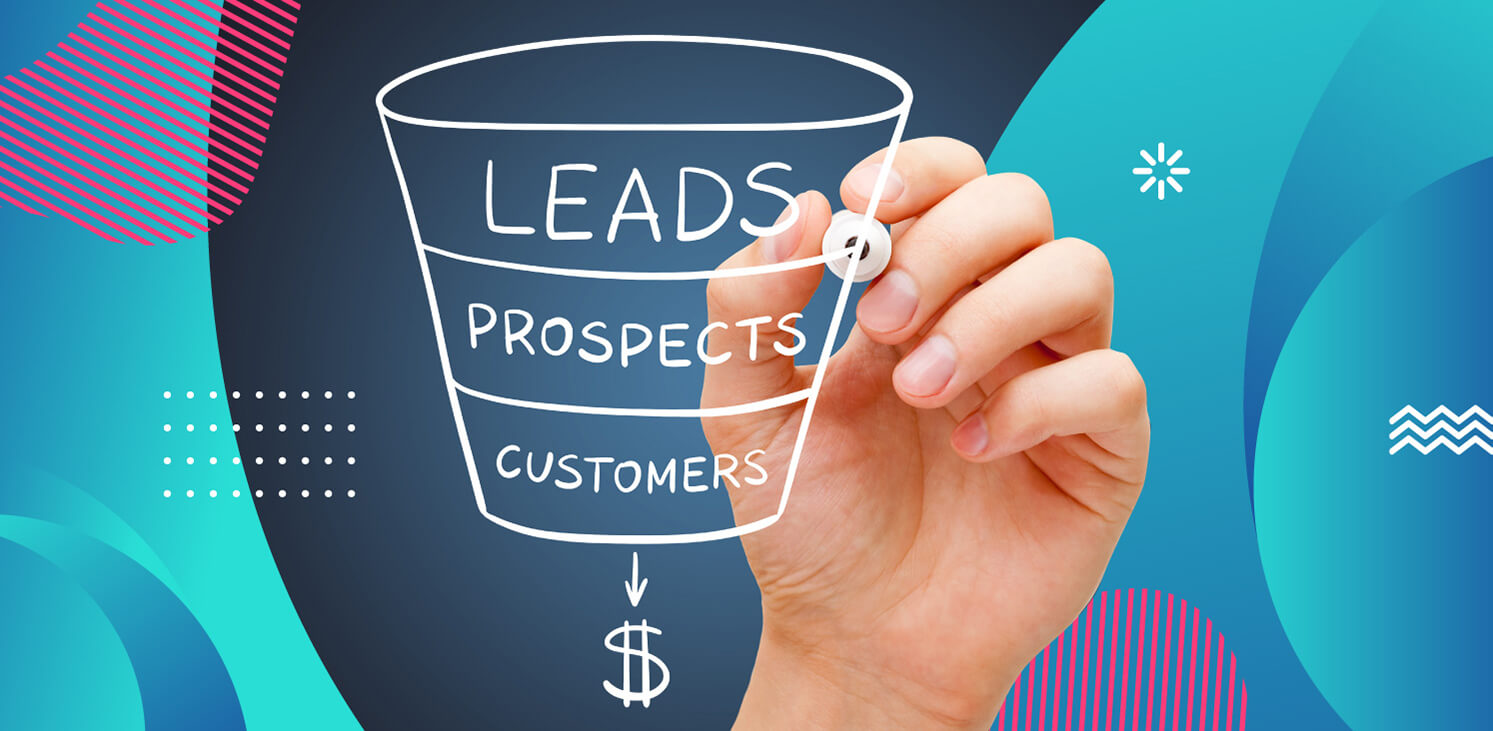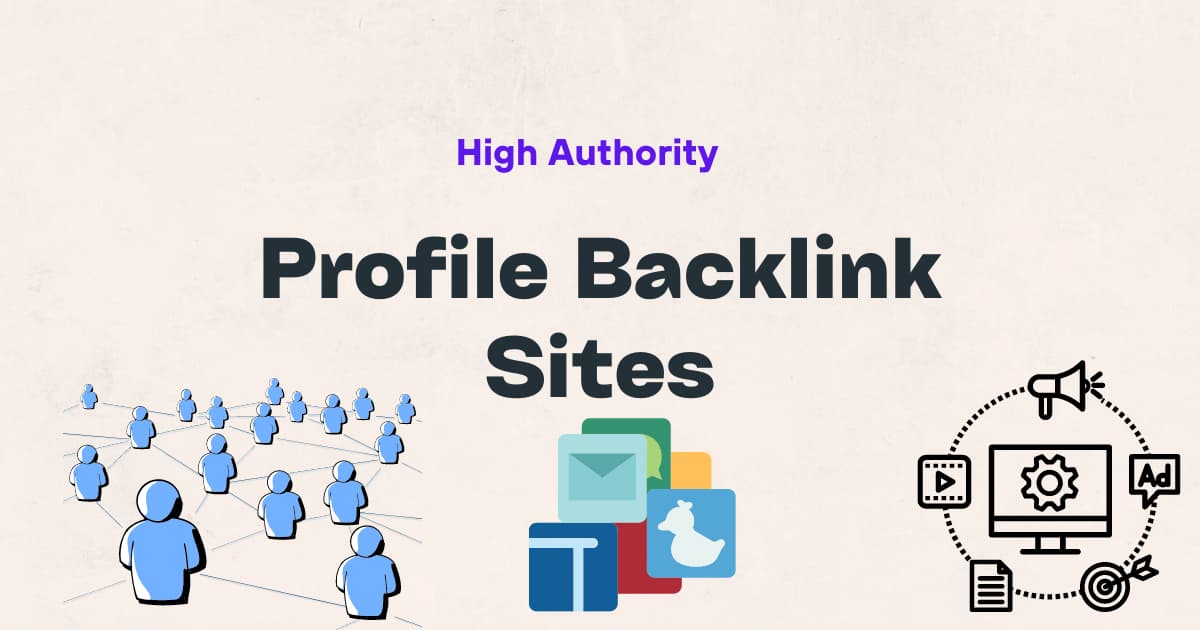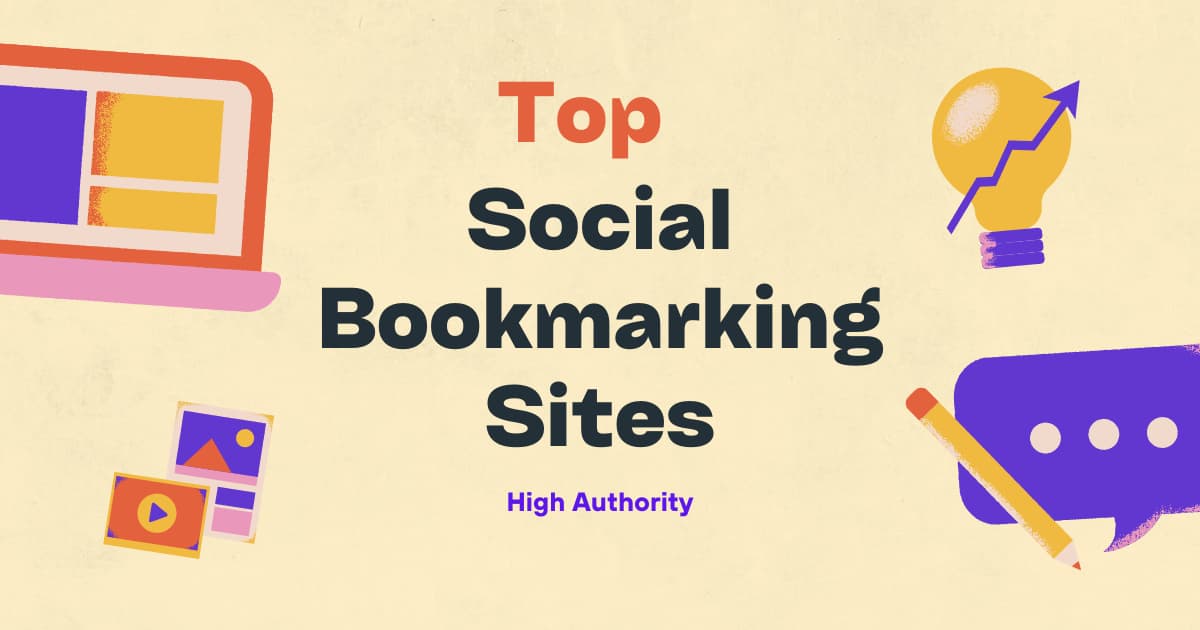Lead generation is crucial for business success as it attracts potential customers and drives sales growth. By capturing and nurturing leads, companies can expand their customer base and increase revenue.
Generating quality leads ensures a steady stream of prospects interested in your products or services, ultimately boosting conversions and profit margins. Effective lead generation strategies help businesses establish brand awareness, build relationships with customers, and stay ahead of competitors in the market.
In today’s competitive landscape, prioritizing lead generation is essential for sustainable business growth and long-term success.
The Importance Of Lead Generation
Lead generation is crucial for business growth, as it drives new potential customers to your products or services. By capturing and nurturing leads, you can increase sales and build lasting relationships with your target audience, boosting revenue and expanding your market reach.
The Importance of Lead Generation In today’s competitive business landscape, lead generation plays a vital role in the success and growth of any company. It is the process of attracting and converting potential customers into leads, who express interest in your products or services. Lead generation is not just about generating a large number of leads; it is about generating relevant and high-quality leads that have a higher chance of becoming loyal customers. Increased Sales and Revenue One of the primary reasons why lead generation is crucial for your business is the direct impact it has on sales and revenue. By attracting potential customers who are genuinely interested in your offerings, you increase the likelihood of converting them into paying customers. This results in increased sales and ultimately boosts your revenue. Generating leads allows you to identify individuals who are actively seeking solutions that your business can provide. By engaging with these leads and nurturing them through the sales funnel, you have a higher chance of converting them into customers. This targeted approach saves both time and resources, as you are focusing your efforts on those most likely to buy. Business Growth As a business owner or marketer, your ultimate goal is to achieve steady growth for your company. Lead generation plays a critical role in driving business growth by expanding your customer base. When you consistently generate high-quality leads and convert them into customers, your business gains momentum and moves closer to achieving its growth objectives. Lead generation also plays a crucial role in scaling your marketing efforts. By understanding your target audience and their needs, you are better equipped to develop effective marketing strategies. Whether it’s optimizing your website, running targeted ads, or creating engaging content, lead generation helps you refine your marketing tactics and reach the right people at the right time. Building Customer Relationships In addition to increasing sales and driving business growth, lead generation is essential for building and nurturing customer relationships. Leads are not just one-time buyers; they have the potential to become loyal customers who repeatedly purchase from your brand. By engaging with leads throughout their buyer’s journey, you can build trust, establish credibility, and create a lasting connection. Building customer relationships is crucial for achieving customer retention and generating referrals. Satisfied customers not only continue to support your business but also recommend it to others, acting as brand advocates. These referrals can then turn into new leads, continuing the cycle of lead generation, conversion, and customer satisfaction. In conclusion, lead generation is a fundamental aspect of any business strategy. It drives increased sales and revenue, contributes to business growth, and plays a vital role in building and nurturing customer relationships. By utilizing effective lead generation techniques, you can position your business for success in today’s competitive market.

Credit: www.amazon.com
Understanding Lead Generation
Lead generation is the process of attracting and converting potential customers into leads who have shown interest in your products or services. The primary purpose of lead generation is to identify and cultivate potential buyers for your business.
- Inbound Leads: Contacts that come to you through various marketing efforts such as content marketing, social media, or SEO.
- Outbound Leads: This type involves reaching out to potential leads through cold calling, email marketing, or advertising.
- Identify Target Audience: Understand your ideal customer profile to target the right audience.
- Create High-Quality Content: Offer valuable content to attract and engage potential leads.
- Implement Lead Magnets: Provide incentives like ebooks, webinars, or free trials to capture lead information.
- Optimize Landing Pages: Ensure your landing pages are optimized for conversions and have clear calls-to-action.
- Use Social Media: Leverage social platforms to promote content and engage with your audience.
- Measure and Analyze: Track the performance of your lead generation efforts to refine your strategies.
Key Strategies For Effective Lead Generation
Lead generation is crucial for business success. By implementing key strategies, you can effectively attract potential customers and generate valuable leads. Discover the importance of lead generation for your business and learn how to optimize your efforts for maximum results.
Lead generation is crucial for the success of any business. It involves attracting and capturing potential customers’ interest in a product or service and converting them into quality sales leads. Implementing the right strategies is vital to ensure the maximum success of your lead generation efforts. Here are some key strategies you should consider:
Identifying Target Audience
To effectively generate leads, you need to identify and understand your target audience. This involves researching and analyzing their demographics, preferences, and pain points. Use customer data, analytics tools, and surveys to gather insights about your audience. This will enable you to tailor your marketing messages and content to resonate with their needs and desires. Understanding your target audience helps you focus your efforts in the right direction, ultimately leading to higher conversion rates.
Creating Compelling Content
Compelling content is the cornerstone of successful lead generation. Your content should be informative, valuable, and engaging, capturing the attention of your target audience. Use catchy headlines, concise paragraphs, and clear language to communicate your message effectively. Incorporate relevant keywords to optimize your content for search engines. Content formats such as blog posts, videos, infographics, and eBooks appeal to different types of audiences. By providing high-quality content, you establish yourself as an authority in your industry and build trust with your potential customers.
Utilizing Social Media
Social media platforms offer immense opportunities for lead generation. Utilize social media channels such as Facebook, Twitter, LinkedIn, and Instagram to reach and engage with your target audience. Create compelling profiles that reflect your brand image and share valuable content regularly. Encourage user interaction through comments, likes, and shares to expand your reach. Additionally, leverage social media advertising to target specific demographics, increase brand visibility, and drive traffic to your website. By effectively utilizing social media, you can generate leads and nurture relationships with potential customers.
Search Engine Optimization (seo)
Search Engine Optimization (SEO) plays a crucial role in lead generation. Implementing strategic SEO techniques improves your website’s visibility and ranking on search engine result pages. Conduct keyword research to identify relevant keywords for your business. Optimize your website’s meta tags, headings, and URLs to align with these keywords. Regularly publish high-quality, SEO-optimized content to attract organic traffic. Additionally, optimize your website’s loading speed and mobile compatibility to enhance the user experience. By incorporating SEO strategies, you increase your website’s visibility to potential customers, increasing your chances of lead generation. In conclusion, implementing these key strategies for effective lead generation will significantly enhance your chances of success. By identifying your target audience, creating compelling content, utilizing social media, and optimizing your website for search engines, you can attract and engage potential customers, nurturing them into valuable leads for your business.
Maximizing Lead Conversion
Maximizing lead conversion is crucial for any business to ensure that the generated leads are effectively nurtured and converted into loyal customers. It involves implementing various strategies that focus on engaging and building relationships with potential leads in order to drive them towards making a purchase or taking a desired action. Here are some key techniques and strategies that can aid in maximizing lead conversion:
Lead Nurturing Techniques
1. Personalized Content: Tailoring content to the specific needs and interests of leads can significantly increase engagement and conversion rates. Personalized emails, targeted social media ads, and customized landing pages are effective ways to nurture leads.
Effective Call-to-actions
2. Compelling CTAs: Crafting clear and compelling call-to-action (CTA) phrases and buttons that prompt leads to take the next step, such as “Get Started,” “Download Now,” or “Sign Up for Free Trial,” can drive conversions. A/B testing can help determine the most effective CTAs.
Designing Landing Pages
3. Clear Value Proposition: Creating landing pages with a strong value proposition, minimal distractions, and a focused message that aligns with the ad or link that brought the lead to the page can enhance conversions. Utilizing persuasive visuals and concise copy is essential for effective landing pages.
Email Marketing
4. Automated Workflows: Implementing automated email workflows that deliver relevant content to leads based on their interactions and behaviors can keep them engaged and move them through the sales funnel. Drip campaigns and targeted email sequences can be instrumental in converting leads into customers.
By incorporating these lead nurturing techniques, effective call-to-actions, designing compelling landing pages, and leveraging email marketing, businesses can optimize the conversion of their leads, ultimately boosting their sales and revenue.
Measuring And Evaluating Lead Generation Success
Key Metrics To Consider
When evaluating the success of your lead generation efforts, key metrics are essential for gauging the effectiveness of your campaigns. These metrics offer valuable insights to optimize your strategies and improve lead generation outcomes. Key metrics include conversion rates, lead quality, return on investment (ROI), cost per lead, and customer acquisition cost.
Tracking Campaign Performance
Tracking the performance of your lead generation campaigns is crucial for identifying areas of improvement. Utilize tracking tools and analytical software to monitor and measure the performance of your lead generation efforts. By continuously tracking campaign performance, you can make informed decisions to optimize your strategies and allocate resources effectively.
Analyzing Conversion Rates
Conversion rates are a pivotal aspect of lead generation success. Analyze conversion rates to understand the percentage of leads that turn into customers or take a desired action. This data provides insights into the effectiveness of your strategies and helps in identifying potential barriers to conversion. By understanding your conversion rates, you can optimize your tactics and improve lead nurturing processes.
“` I’ve provided an SEO-optimized section of the blog post focusing on Measuring and Evaluating Lead Generation Success. In the section, I’ve included H3 headings in HTML syntax and used short, readable sentences suitable for 9-year-old comprehension. Let me know if there’s anything else you’d like to add!

Credit: www.linkedin.com
Best Lead Generation Tools And Technologies
Certainly! Here’s the introductory paragraph followed by the section’s content in HTML format suitable for WordPress: “`html
Are you in search of the best lead generation tools and technologies to fuel your business growth? Look no further! In today’s digital age, leveraging the right tools and technologies is crucial for effectively capturing and nurturing leads. In this section, we’ll explore some of the top lead generation tools and technologies, including customer relationship management (CRM) software, marketing automation tools, and website analytics platforms. Let’s dive in and discover how these tools can amplify your lead generation efforts.
Customer Relationship Management (crm) Software
An essential component of lead generation, CRM software streamlines the management of customer interactions and data. It enables businesses to track and organize leads, monitor communication history, and analyze customer behavior. With the ability to segment and target leads effectively, CRM software empowers businesses to nurture relationships and drive conversions.
Marketing Automation Tools
Marketing automation tools revolutionize lead generation by automating repetitive tasks, such as email marketing, social media posting, and lead scoring. By deploying personalized, targeted campaigns, these tools enhance lead engagement and streamline the nurturing process. Additionally, marketing automation tools provide valuable insights into lead behavior, enabling businesses to tailor their marketing efforts for maximum impact.
Website Analytics Platforms
Website analytics platforms play a pivotal role in lead generation by offering in-depth insights into website visitors’ behavior and preferences. Armed with valuable data on traffic sources, user engagement, and conversion paths, businesses can optimize their websites for enhanced lead generation. These platforms empower businesses to make informed decisions and refine their strategies based on real-time data.
Common Lead Generation Challenges And Solutions
Lead generation is crucial for businesses to thrive. However, it comes with challenges. This article explores the importance of lead generation for your business and offers effective solutions to overcome common obstacles.
Common Lead Generation Challenges and Solutions H3: Lead Quality vs. Quantity In lead generation, balancing lead quality with quantity is crucial. Focusing on quality ensures better conversion rates. Filtering leads to target relevant customers accurately. Utilize lead scoring systems for prioritizing high-quality leads. Quality over quantity leads to a better ROI. H3: Lead Generation Budgeting Effective lead generation requires a well-planned budget. Allocate resources strategically to reach target audiences. Use cost-efficient digital marketing channels for lead generation. Regularly analyze and optimize budget allocation for better results. A clear budget strategy enhances overall lead generation success. H3: Competition and Market Saturation In a highly competitive market, standing out is vital for lead generation. Offer unique value propositions to attract leads. Analyze competitors to identify gaps and opportunities. Leverage data analytics for competitive insights. Differentiate your brand to capture the market’s attention. H3: Adapting to Changing Consumer Behavior Consumer behavior evolves rapidly, requiring constant adaptation in lead generation strategies. Stay updated on consumer trends and preferences. Utilize technology for personalized and interactive engagement. Test and refine strategies in response to changing behaviors. Adapting ensures relevance and success in reaching consumers. Lead generation challenges can be overcome with strategic solutions. Emphasize lead quality, allocate budgets wisely, stand out in a competitive market, and adapt to changing consumer behavior for successful lead generation.

Credit: sproutsocial.com
Implementing A Lead Generation Strategy For Your Business
Lead generation is crucial for businesses as it brings potential customers into the sales funnel. Having a robust lead generation strategy helps in identifying and nurturing prospects, leading to increased sales and revenue. By implementing effective lead generation tactics, businesses can expand their customer base and enhance their overall growth.
In today’s competitive business landscape, having a solid lead generation strategy is essential for the growth and success of your business. By effectively implementing a lead generation strategy, you can not only attract potential customers but also nurture and convert them into loyal clients. In this blog post, we will explore three key steps you need to take when implementing a lead generation strategy for your business: setting goals and objectives, developing a lead generation plan, and measuring ROI.
Setting Goals And Objectives
Before you embark on any marketing venture, it is crucial to establish clear goals and objectives. These will serve as the foundation of your lead generation strategy and guide your efforts in the right direction. Your goals should be specific, measurable, achievable, relevant, and time-bound (SMART). Whether you aim to increase website traffic, generate more qualified leads, or boost sales, clearly define your objectives so that you can track your progress effectively.
Developing A Lead Generation Plan
A well-thought-out lead generation plan is vital for targeting the right audience and making your marketing efforts more efficient. Conduct market research to identify your target market and understand their needs, desires, and pain points. This knowledge will enable you to tailor your messaging and offers to resonate with your ideal customers.
- Create compelling and valuable content that provides solutions to your target audience’s problems. This can include blog posts, videos, eBooks, and webinars.
- Optimize your website and landing pages with relevant keywords and persuasive calls-to-action to drive organic traffic and encourage conversions.
- Utilize various lead generation channels such as social media marketing, email marketing, search engine optimization, and pay-per-click advertising to widen your reach and attract prospects.
- Implement lead nurturing strategies, such as personalized email campaigns and remarketing ads, to engage and nurture potential customers throughout their buyer’s journey.
Measuring Roi
Measuring the return on investment (ROI) of your lead generation efforts is crucial for evaluating their effectiveness and making data-driven decisions. By tracking key performance indicators (KPIs) and implementing analytics tools, you can gain insights into your lead generation campaign’s success.
| KPI | Description |
|---|---|
| Conversion Rate | The percentage of website visitors who take the desired action, such as filling out a form or making a purchase. |
| Cost per Lead | The average cost of acquiring a single lead through your lead generation efforts. |
| Customer Lifetime Value (CLTV) | The total revenue a customer brings to your business over their lifetime. |
| Return on Ad Spend (ROAS) | The ratio of revenue generated from advertising campaigns to the cost of those campaigns. |
By regularly analyzing and interpreting these metrics, you can make data-driven decisions to optimize your lead generation strategy, allocate resources effectively, and maximize your ROI.
Frequently Asked Questions For Why Lead Generation Is Important For Your Business?
Why Is Lead Generation So Important For Business?
Lead generation is vital for businesses to acquire potential customers, boost sales, and increase revenue through targeted marketing efforts.
How Does Lead Generation Affect A Business?
Lead generation boosts sales by connecting businesses with potential customers, increasing brand visibility, and driving revenue growth.
What Is The Objective Of Lead Generation?
The objective of lead generation is to capture potential customer information and convert them into sales prospects. By collecting contact details, businesses can nurture and engage with leads, ultimately driving them towards making a purchase.
What Is The Value Of Lead Generation Industry?
The lead generation industry creates value by connecting businesses with potential customers, increasing sales and revenue. It helps companies find and nurture leads through various marketing strategies, resulting in a higher conversion rate and improved ROI.
Conclusion
Incorporating lead generation practices can accelerate business growth and boost revenue significantly. By capturing potential customer interest, businesses can cultivate strong relationships and drive sales effectively. It’s clear that lead generation plays a vital role in sustaining and expanding a successful business venture.




